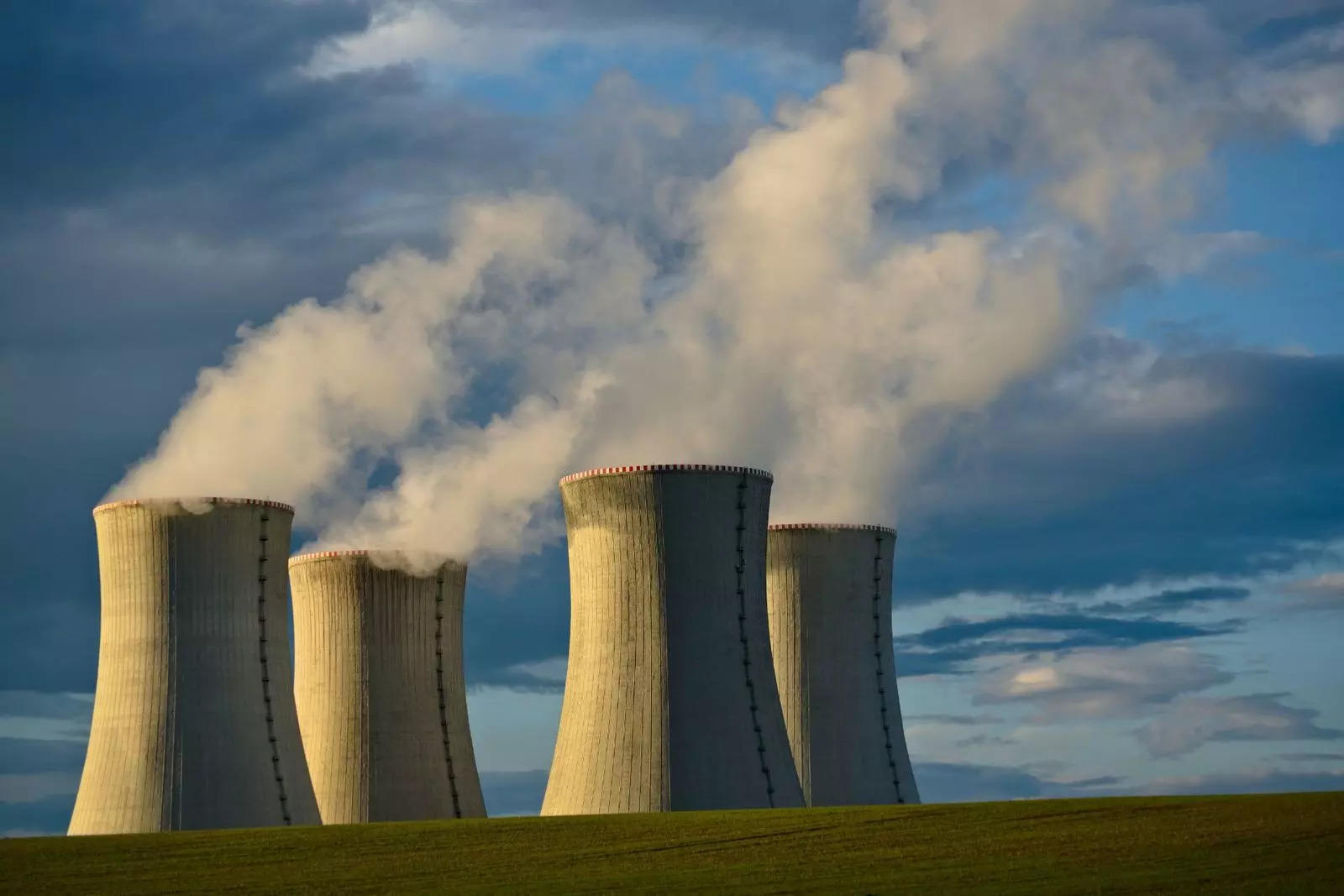
Finance Minister Nirmala Sitharaman, in her presentation of the Union Budget for 2025-26 in the Parliament, announced numerous measures aimed at driving development and innovation in the energy sector, including both traditional and renewable sources.
More importantly, she made a groundbreaking announcement for the development of solar energy under public-private partnerships. This article provides an overview of the strategic initiatives announced in the Union Budget that may significantly boost the nuclear energy landscape in India in the coming years.
What did the Union Budget have in store for Nuclear Energy?
The Union Budget has allocated an upwards of INR 24,000 Crores towards Nuclear Energy which also includes investing in research and development and setting up of nuclear power plants. The budget emphasizes the development of nuclear energy, with a goal of achieving at least 100 GW of nuclear energy capacity by 2047.
Additionally, a Nuclear Energy Mission will be established with an outlay of INR 20,000 crore for research and development of Small Modular Reactors (SMRs), with the aim of operationalizing at least 5 indigenously developed SMRs by 2033.
Further to above, for an active partnership with the private sector towards the above-mentioned goal, the Union Budget has proposed amendments to the Civil Liability for Nuclear Damage Act, 2010 (“Civil Liability Act”) and the Atomic Energy Act, 1962 (“Atomic Energy Act”).
What are the details of these Acts, and why has the Finance Minister proposed amendments to them?
The Civil Liability Act was enacted by the Indian government to establish a legal framework for compensation in the event of a nuclear incident. The primary purpose of the Act is to provide for civil liability for nuclear damage and ensure prompt compensation to victims of nuclear incidents through a no-fault liability regime.
It channels liability to the operator and establishes mechanisms for compensation claims, including the appointment of a Claims Commissioner and the establishment of a Nuclear Damage Claims Commission.
Similarly, the Atomic Energy Act is a comprehensive legislation that governs the development, control, and use of atomic energy in India. The primary aim of the Act is to ensure the safe and secure use of nuclear energy for peaceful purposes, while maintaining strict control over all activities related to atomic energy.
The Central Government has exclusive control over the production, development, use, and disposal of atomic energy, either directly or through a government-established authority.
The Civil Liability Act has deterred private sector investors and particularly the foreign entities from becoming active participants in the Indian nuclear energy sphere. This is primarily because the Act imposes liability on the operator for any nuclear damage. This liability is strict and a no-fault liability under the terms of Section 4(4) of the Act.
Whilst the Act does provide for a monetary cap on operator’s liability, however, as on February 4, 2024, the liability cap stood at INR 3400 Crores, which may be increased even further by the way of a Central Government notification.
Further, the Act also provides that the provisions of the Civil Liability Act shall be in addition to, and not in derogation of, any other law for the time being in force, and nothing contained in the Civil Liability Act shall exempt the operator from any proceeding instituted against such operator under any other law.
Moreover, operators are required to maintain substantial insurance or financial securities or a combination of both to cover their liabilities under Section 6 of the Civil Liability Act, in the form and manner prescribed by the Central Government. The Act also allows operators to seek recourse against suppliers in cases of contractual provisions, supplier’s fault in the event of a “patent or latent” defect in the equipment supplied, or intentional acts causing damage, as stipulated in Section 17.
In addition to the above, the Atomic Energy Act grants extensive control to the Central Government over all activities related to atomic energy which includes the mining, production, and use of atomic energy and related materials. The Atomic Energy Act specifies that only government companies, where not less than 51% of the paid-up share capital is held by the Central Government, can be involved in the production and use of atomic energy.
Whilst the main purpose of the Civil Liability Act and the Atomic Energy Act was to ensure a robust mechanism is in place to deal with the potential adversities emanating from a nuclear accident and to provide the Central Government with control over different aspects of nuclear energy production and operation, the Acts posed a challenge in attracting investment in R&D/operations of nuclear power plants in India.
Hence it is evident that the finance minister has sought to amend the above-mentioned legislations in order to promote the development and operations of nuclear power plants in India under a public private partnership model under an investment environment to achieve 100 GW of nuclear capacity by 2047.
Conclusion
The Union Budget’s significant allocation and proposal on legislative amendments reflect India’s strong commitment to advancing its nuclear energy capabilities. By fostering an environment conducive to investment and public-private partnerships, the country aims to achieve an ambitious nuclear energy capacity of 100 GW by 2047.
These progressive steps not only promise to enhance the nation’s energy security and sustainability but also position India as a formidable player in the global nuclear energy landscape. Whilst the exact nature of the amendments sought in the above-mentioned legislations remains to be seen, as these initiatives unfold, they hold the potential to drive technological innovation and economic growth, heralding a new era for India’s energy sector.


Comments